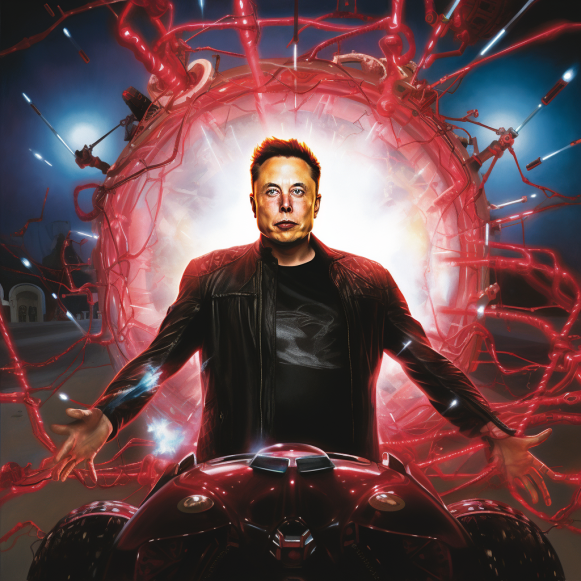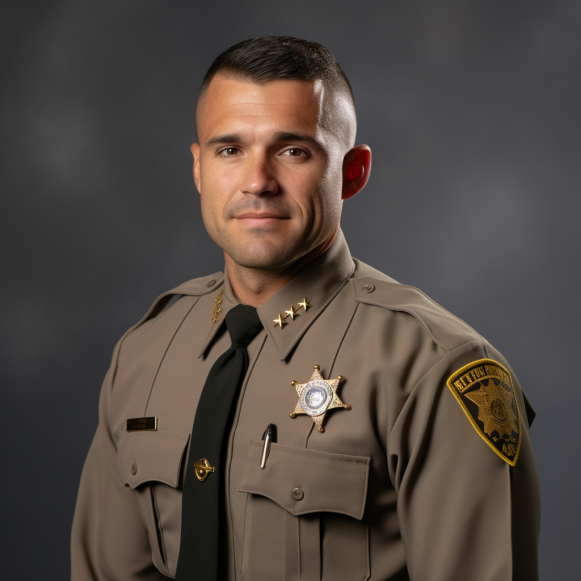Books for fall 2023: Our 75 top picks for serious reading season — and there’s plenty of light stuff here too

Is it just me who thinks it’s odd that we still treat the seasons as distinct periods of time? I love fall, especially the lineal moment just before it gets chilly, that promise of fall. But this is the fall book preview, and while I should be excited to tell you about upcoming weeks of incredible titles — Walter Isaacson on Elon Musk, Zadie Smith on historical fiction, Sly Stone (!) on himself — climatologists warn that summer could last until Groundhog Day.
So many books, so little time, as the saying goes. There are far too many books to read before Groundhog Day, let alone Thanksgiving. To make matters worse, Chicago is constantly opening new bookstores. Fall was already over. Fall never had to be any shorter. Fall, the most crowded of reading seasons, the time of year when it is said that we return to being serious readers, already felt like a melancholy art installation of a season, designed to remind you that life is short and art is long. However, I fear that fall will soon become more of a mental state than an eight-week period on the calendar.
For the time being, the good news isn’t so bad:
Look at all of this new material to read.
For the aspiring criminal
Surprisingly, we are living in a golden age of crime writing. Exhibit A: Harry MacLean’s engrossing taxonomy “Starkweather” (Nov. 28), a history of the murderer whose nihilism sparked generations of reactions, from Bruce Springsteen’s “Nebraska” to the media’s embrace of crime itself. “Holly,” another great reminder that Stephen King is a master of dime-store procedurals, is about octogenarians who have a secret that is too horrible to hint at. The crime book of the season, however, is Library of America’s “Crime Novels of the 1960s,” a definitive nine-novel box set that argues for the decade as the moment when crime writers embraced the mind (Chester Himes, Patricia Highsmith) even as they became lean and mean (Ed McBain, Richard Stark).
For the Chicago know-it-all
“The Burning of the World: The Great Chicago Fire and the War for a City’s Soul” (September 26) raises an important question: Do we need another one of these? Yes, when it’s told this clearly, alternating familiar anecdotes with a deft focus on the tense class and moral quandaries that later defined a smoldering city. “Milton Friedman: The Last Conservative” (Nov. 14) bills itself as the first true biography of the most influential proponent of the Chicago school of economics, and it’s difficult to imagine a more readable, extensively researched portrait of the Hyde Park institution, whose teachings brought on the Reagan years and probably razed more of Chicago than any single fire ever could. I’m not sure if the title “Opposable Thumbs: How Siskel & Ebert Changed Movies Forever” (Oct. 24) is accurate. (They changed the way we talked about movies.) In any case, Matt Singer’s book is a pleasant, reverent history of the creation of an important TV show, though it is less revealing about the personalities, aesthetics, and history of the critics.
For the reader without time to read
Is it satisfying to read something in a day? Or how about an hour? Lydia Davis’ new story collection, “Our Strangers” (Oct. 3), finds the extraordinary (and extraordinary prosaic) in a few lines, with subjects such as stray coconuts and a neighbor’s stare. Claire Keegan’s “So Late in the Day” (Nov. 14) collection is an hour or two of reading that contains a lifetime of thoughts. Arrogance and romance are on the couch here. “Touched” (Oct. 10) flexes mystery writer Walter Mosley’s lesser-known sci-fi muscle in a brisk parable about a guy convinced he can solve humanity’s problem. But who is my current favorite short novelist?T. Kingfisher is the pen name of a North Carolina fantasy and horror novelist whose stories build knowingly on centuries of classics. Her latest novel, “Thornhedge,” features knights, fairies, humor, an impenetrable wall of brambles, and — surprisingly for the genre — the sensation of reading an original voice.
For those in need of a laugh
First, a pair of snorting satires that only require elevator pitches. “The Golem of Brooklyn” (Sept. 26) is about an art teacher who unwittingly creates a golem of Jewish folklore that wonders why Jews need saving now and learns to talk by watching “Curb Your Enthusiasm” (sounds dumb, but it’s not); “The Book of Ayn” (Nov. 14) is Lexi Freiman’s delirious road trip through the age of selfishness. A writer embraces Ayn Rand and follows her darkest whims wherever they may lead after being labeled “classist” by The New York Times and then canceled on Twitter. Contrarian and chaotic in the best possible way. In terms of nonfiction, “Comedy Book: How Comedy Conquered Culture — and the Magic That Makes It Work” (Nov. 7) by New York Magazine’s excellent comedy critic Jesse David Fox is the comedy book that Comedy the Art Form didn’t have until now — a vibrant mash-up of meaning and history that pokes into how comedy ages; conservatives and jokes; the genius of lowbrow, and more.
For Chicago-centric fiction
Nathan Hill is no Chicagoan (Iowan, unfortunately), but “The Wellness” (Sept. 19) becomes uncomfortably knowing. It’s most likely the current Chicago novel. Try not to squirm: A couple of ’90s Wicker Park-Empty Bottle veterans move to the suburbs, have children, and then find themselves in another kind of cultural cult, losing touch with themselves. (Example chilling line: “And then one day, they began losing friends.”) As for “I Done Clicked My Heels Three Times,” Chicago native Taylor Byas’ debut poetry collection is a buoyant blast of South Side love and ache, conversing with Gwendolyn Brooks and Carl Sandburg, while also making room for Harold’s Chicken and Claudia Rankine. “The New Naturals” (Nov. 14) is written by Gabriel Bump of the South Shore, a burgeoning talent whose latest reads like Ann Patchett shot through Percival Everett: a couple abandons society and builds an underground utopia in western New England. Others arrive soon after, from Chicago and San Francisco. They paint, listen to jazz, and exercise. “Purpose was everywhere,” writes Bump.So, what could possibly go wrong?Kerri Maher, who made a name for herself with accessible historical bestsellers like “The Paris Bookseller,” is back with “All You Have to Do is Call” (Sept. 19), a loosely fictional account of the very real Jane, the Chicago women’s health network that provided illegal abortions in the pre-Roe Midwest.
Readers interested in rubbernecking
The fall season is prime time for celebrity memoirs. “My Name Is Barbra” (Nov. 7), the long-awaited memoir from Barbra Streisand promises juicy stuff and, at 992 pages, let’s hope that’s not hype. Speaking of hype, Jada Pinkett Smith’s “Worthy” (Oct. 17) aims to correct the allegedly misleading ideas you have, despite being half the length of Babs: 416 pages. Kerry Washington’s “Thicker Than Water” (Sept. 26) sounds more like the usual celeb memoir fare — reflections on the actress’s political activism, self-love, and creative ambitions. Who knows how genuine Britney Spears’ memoir “The Woman in Me” (Oct. 24) will be?
For more fascinating lives
Viet Thanh Nguyen, Pulitzer Prize winner for “The Sympathizer,” reflects on his life as a refugee confronted with American high school, John Hughes, and Vietnam War films. “A Man of Two Faces: A Memoir, a History, a Memorial” (Oct. 3) is a prose poem written by an author who was asked to play the role of an appreciative immigrant. “How to Say Babylon” (Oct. 3) works an inverted take on growing up, via Jamaica, focusing on a harsh sect of Rastafarianism that author Safiya Sinclair’s father wielded against his family. Because of his “unpredictable mood and controlling reach,” her life was barred from any Western influence. Her role was that of obedient daughter. Until she discovered books. “Sure, I’ll Join Your Cult” is comedian Maria Bamford’s unnervingly direct cataloging of her mental illness — and treatments, from Debtors Anonymous to hospitalizations — that she describes as “a series of emotional sudoku puzzles” she grows “tired of trying to solve.” Speaking of puzzles, Mary Gabriel, whose acclaimed history “Ninth Street Women” remade thinking on gender and visual art, is dropping a brick: “Madonna”
For memoir readers sick of memoirs
The excellent “Motherland” (Oct. 31) by Venezuelan journalist Paula Ramon is a joint study of a nation dying under authoritarianism and a family pulling away, leaving their aging matriarch alone in “a concrete bunker” of a home, a hotbox when the mismanaged electrical grids fail. Rarely are South American upheavals described in such detail. Dwight Garner’s “The Upstairs Delicatessen” (Oct. 24) is one of the most eccentric memoirs I’ve read in years: Garner, a longtime New York Times critic, boils (dices and purées) his existence down to a pair of obsessions — books and food — so completely that it’s both honest and difficult to tell where the man ends and M.F.K. Fisher begins. Gay Talese’s “Bartleby & Me: Reflections of an Old Scrivener” (Sept. 19) — described by the publisher as the 91-year-old’s “valedictory work” — foregoes personal biography in favor of revisiting a lifetime of profiling others. The premise of “Doppelganger: A Trip into the Mirror World” is simple: acclaimed author/activist Naomi Klein frequently gets confused with author/activist Naomi Wolf, an annoyance that escalates when Wolf’s conspiracy theories gain traction. Klein cleverly exploits the confusion, given the history of doubles and the digital discombobulation we experience these days from those who insist up is down and black is white.
For stories about existentially challenged people
“The Apology,” by Jimin Han, a South Korean-born writer, is a lovely, caustic, and trauma-soaked example of the new literary embrace of actual ghosts. A 105-year-old woman from Seoul dies in Chicago while visiting family. What follows is a multigenerational story told by a ghost eager to break a curse. Jo Nesbo’s “The Night House” (Oct. 3), on the other hand, is the popular Oslo detective writer’s first foray into horror, a broad, entertaining haunted house legend that begins, ahem, when a telephone devours a child. Much scarier is Carissa Orlando’s “The September House,” a haunted house story with a riveting twist: Margaret and Hal buy a Victorian home that bleeds, screams, and scares every September, but Margaret refuses to leave — ever. What appears ridiculous (“The first year we were in the house, Hal tried to convince me that the bleeding was a leak”) becomes psychologically rousing.
For a history of right now
Jill Lepore’s “The Deadline” may be the most difficult book I’ve read this year — difficult because I kept putting it down to make it last longer. From clear-eyed context on gun control to presidential overreach and Barbie, this collection of four dozen deep dives from the Harvard professor (and New Yorker favorite) is a bottomless well of personal history informing the present. “American Gun: The True Story of the AR-15” (Sept. 26) is a “Oppenheimer” tragedy of unintended consequences, with one difference: Eugene Stoner, a former Marine, builds an easy-to-use gun intended for soldiers that becomes the mass murder weapon of choice — though, as this history shows, Stoner, unlike Oppenheimer, was unconcerned about the ripples created. If you like comeuppance, Michael Lewis’ “Going Infinite: The Rise and Fall of a New Tycoon” (Oct. 3) is a dissection of the cryptocurrency boom.
For fans of short stories
The characters in Jhumpa Lahiri’s “Roman Stories” (Oct. 10), her first collection in 15 years, are intentionally hazy in this portrait of the Italian metropolis where “water stains everything it touches” and stone stairs are “a kind of ancient amphitheater.” An original perspective on well-trodden streets (the kind that someone should apply to contemporary Chicago).Yiyun Li, author of last year’s smash “The Book of Goose,” returns with “Wednesday’s Child,” a beautiful heartbreaker about the shades of grief, from memories of a suicide pact to a literal spreadsheet of loss. It’s difficult, but it’s worthwhile. Collections from two of our finest writers are a bit more fun: Kate Atkinson’s “Normal Rules Don’t Apply” brings her playful existentialism to tales about Earth’s redesign and a society where the end of the world arrives daily (but only lasts five minutes); and Steven Millhauser’s “Disruptions,” said to be his valedictory goodbye after five decades, finds more Shirley Jackson-like shadows on the sunniest afternoon. Few could write so beautifully about a real guillotine above a town and “edges of maple leaves precise against the blue sky.”
To keep a close eye on Silicon Valley disruptors
The author of popular biographies of other game changers (da Vinci, Jobs, Einstein) has a hill to climb with “Elon Musk” by Walter Isaacson. Or, as the Twitter saga continues, is it too soon? Certainly, Amy Kurzweil’s cartoon “Artificial” (Oct. 17) raises uneasy questions about her own ancestry and her father, Ray Kurzweil, the celebrated inventor who is building an AI chatbot to give their family tree immortality. Benjamn Labatut’s 2021 fiction/fact mix, “When We Cease to Understand the World,” has become a cult favorite and must-read for anyone concerned about the misuse of science. “The Maniac” (Oct. 3) adds to those concerns, with a (sorta) fictional portrait of John von Neumann, an early AI pioneer and (yes) Oppenheimer colleague. “The Future” (Nov. 7) by “The Power” author Naomi Alderman is a lighter doomsday, a thriller about friends banding together to thwart the march of nutso tech barons.
Literary filmgoers
The cultural biographer Sam Wasson’s “The Path to Paradise: A Francis Ford Coppola Story” (Nov. 28), like the filmmaker’s, is a bittersweet bundle of Quixotic reach exceeding an ambitious grasp. Coppola’s Zoetrope studio is the focus, and it’s painful to see a personal vision surrender to a Hollywood that is no longer interested. However, “MCU: The Reign of Marvel Studios” (October 10) would make an excellent sequel. A gossipy first draft of a movie history (the MCU is far from over) that appears to some to be the end of movie history. What it lacks in new material (or a sharp critical eye) it makes up for in clarity, a step-by-step account of a studio developing a brand. It’s impossible to read Werner Herzog’s “Every Man For Himself and God Against All: A Memoir” (Oct. 10) without hearing the director’s stunned monotone recount a strange package dropped from an airplane behind his childhood home, or his stint on “The Simpsons.” (Until 2002, Herzog had no idea it was a TV show.) It’s episodic, offbeat, and casually revealing, just like his films.
From today’s literary giants
Justin Torres, whose “We the Animals” catapulted him to stardom as a young writer, returns 12 years later with “Blackouts” (Oct. 10), a Nabokov-esque puzzle about a dying man and erased queer history. “The Vaster Wilds,” by prolific Lauren Groff, may be her best work yet, part adventure about a servant fleeing 17th-century colonial America, part awe for nature. Bryan Washington’s latest novel, “Family Meal” (Oct. 10), is about a man who is grieving the death of a partner and is haunted by the ghost of that partner even as he reconnects with an old friend. “Devil Makes Three” (September 26) marks the long-awaited return of Ben Fountain, whose “Billy Lynn’s Long Halftime Walk” transformed an NFL halftime show into a state-of-the-nation speech. He goes full Graham Greene on this one, with an epic about shipwreck divers set against the backdrop of a Haitian coup.Zadie Smith, on the other hand, is similarly enthralling. “The Fraud,” her first novel in seven years, is set during the Tichborne Trial in Victorian England, when an Australian butcher claimed to be an heir beyond his apparent station, enthralling England with questions of authenticity and privilege. Smith, at the pinnacle of her abilities, uses the trial to veer toward the onlookers and witnesses on the outskirts of the case.
From established greats
Few modern novelists are as polished as Alice McDermott. “Absolution” (Nov. 7) is a graceful moral obligation parable set in the early days of the Vietnam War, as told by American spouses in Saigon with military husbands. Tim O’Brien, whose seminal book “The Things They Carried” is about the Vietnam War, turns to cross-country escapes in “America Fantastica” (Oct. 24), about a journalist fleeing hit men and worse. My mind was filled with visions of an HBO series. “The Pole” (Sept. 19) is a fall book bingo card: J.M. Coetzee, the reclusive Nobel laureate, returns with a finely crafted love story about an aging Polish pianist and his Spanish patron. (Trauma, he writes, is “a bomb that explodes harmlessly but leaves one deafened.”) Tananarive Due, the group’s least well-known member, has been a writer’s writer for decades. Her latest novel, “The Reformatory,” is due out on October 31. It’s the epic story of a Jim Crow Florida reform school — inspired by Colson Whitehead’s Pulitzer-winning “Nickel Boys” — with the ghosts of abused children literally haunting the abusers.
For a look at the natural world
Don’t tell Elon Musk, but science writing is rarely as readable (or as deflating) as “A City on Mars” (Nov. 7), an informed, irreverent examination of how little we actually know about the practical considerations of space colonization, ranging from sex and legal cannibalism to settlement and affordable housing. (We’re reminded that Elton John never mentions “the potential for pelvic fracture during labor” in “Rocket Man.”) Talk about timing: Susan Casey’s “The Underworld: Journeys to the Depths of the Ocean” is a more sober history/survey of what we know of the 80% of the deepest ocean that remains unexplored. (If you were obsessed with the Titan submersible last summer, this is the context.) “Sins of the Shovel: Looting, Murder, and the Evolution of American Archaeology” (Nov. 6) is a timely look at the long, tumultuous relationship between scientists and Indigenous Americans — and how atonement informs how archaeology operates today. “Endangered Eating” (Oct. 24) is a surprising journey across the United States by culinary historian Sarah Lohman, visiting the vanishing futures of native peanuts, apples, Ojibwe wild rice, and Hawaiian sugar cane.
The story of the U.S.
Ben Austen, author of the acclaimed Chicago housing history “High-Risers,” is back with “Correction: Parole, Prison, and the Possibility of Change” (Nov. 7), a tight (less than 300-page) history of U.S. prisons and penance, as well as tales of two men and their never-ending paths. A damning act of intense reporting that raises the question, “Do we believe in atonement?” If so, how does it appear? And how serious can we be when a slight shift in courtroom momentum results in the death of a person? This one will get a lot of attention. Follow it up with “Flight of the WASP: The Rise, Fall, and Future of America’s Original Ruling Class” (Nov. 14), a frequently engrossing, digressive history of opposing ideas: America was meant to be a safe harbor from class; America is dominated by class. Then there’s David Leonhardt’s “Ours Was the Shining Future: The Rise and Fall of the American Dream” (Oct. 24), an approachable, ultimately upbeat portrait of the American economy as a collection of often contradictory ideas about who deserves how much of what.
For brief Halloween scares
Three excellent story collections. “Out There Screaming: An Anthology of New Black Horror” (Oct. 3), edited by Jordan Peele, is the season’s horror title, a state-of-the-genre starring Tananarive Due and Flossmoor native Nnedi Okorafor, and a reminder of how important racial trauma has been to the flowering of horror writing. “A Darker Shade of Noir,” edited by Joyce Carol Oates, continues the renaissance with 15 new horror stories by all-star women writers such as Oates, Aimee Bender, Margaret Atwood, Megan Abbott, and (once again) Due. The emphasis, of course, is on bodily autonomy — and it’s not pretty. “Night Side of the River” (Oct. 24), another chapter in Jeanette Winterson’s varied career, is a collection of British ghost stories (sexy, austere, unsettling) that continue her love of defying expectations.
Those who prefer to read music
Jeff Tweedy of Wilco continues his side project, telling personal stories from a lifetime of lore. “World Within a Song” (Nov. 7) sounds like Bob Dylan’s most recent literary experiment, but it’s less obtuse: “My Sharona,” “Freebird,” and the Replacements (along with four dozen other music benchmarks) become writing prompts on criticism, religion, and place poetry. It’s a book that encourages you to listen to some records. “Thank You (Falettinme Be Mice Elf Agin)” (Oct. 17) is the unlikely thoughts of Sly Stone, who goes beyond (but not all that far beyond) the question: Sly Stone is still alive?“Sonic Life” (Oct. 24), by Sonic Youth’s Thurston Moore, is the best kind of music memoir, an act of cultural excavation — specifically how the underground scene of the 1980s could eventually create, as Moore puts it (proudly), “a heritage act.” As of this writing, still waiting on the text of “My Effin’ Life” (Nov. 14) by Rush’s Geddy Lee, but, if it’s like Rush, should be overstuffed and lovable. As for long-awaited books, it’s a two-way tie between Staci Robinson’s “Tupac Shakur: The Authorized Biography” (Oct. 24), which focuses on his family rather than the artist, and Will Hermes’ remarkable “Lou Reed: The King of New York” (Oct. 3), a mountain of reporting and archival material pulled into a fluid, insightful shape that digs as close to the heart of the famously dyspeptic Reed as
For a good old-fashioned generational epic
Kathleen Rooney, one of Chicago’s literary underdogs, is a master at cramming history into bright, meaningful prose. “From Dust to Stardust” (inspired by the life of actress Colleen Moore and her Fairy Castle at the Museum of Science and Industry), Rooney captures nascent Hollywood fame and a longing for home. “Coleman Hill,” by Kim Coleman Foote of Chicago State University, is a rare Great Migration novel that stays in the suburbs, weaving personal history into a story of two families emerging from slavery and inheriting pain and promise decades later. “Astor: The Rise and Fall of an American Fortune” (Sept. 19) by Katherine Howe and CNN’s Anderson Cooper, who collaborated on a similar history of Cooper’s clan, the Vanderbilts, is a rich history about the ways in which the very name of the mega-rich weakens through ubiquity and hubris. “Nineteen Steps” is the lit debut of “Stranger Things” star Millie Bobby Brown, who is 19 years old. It’s a story about the London Blitz inspired by her grandmother. It has single teardrops running down its cheeks, a penchant for previously unknown nooks of the historical record, and a big heart.




